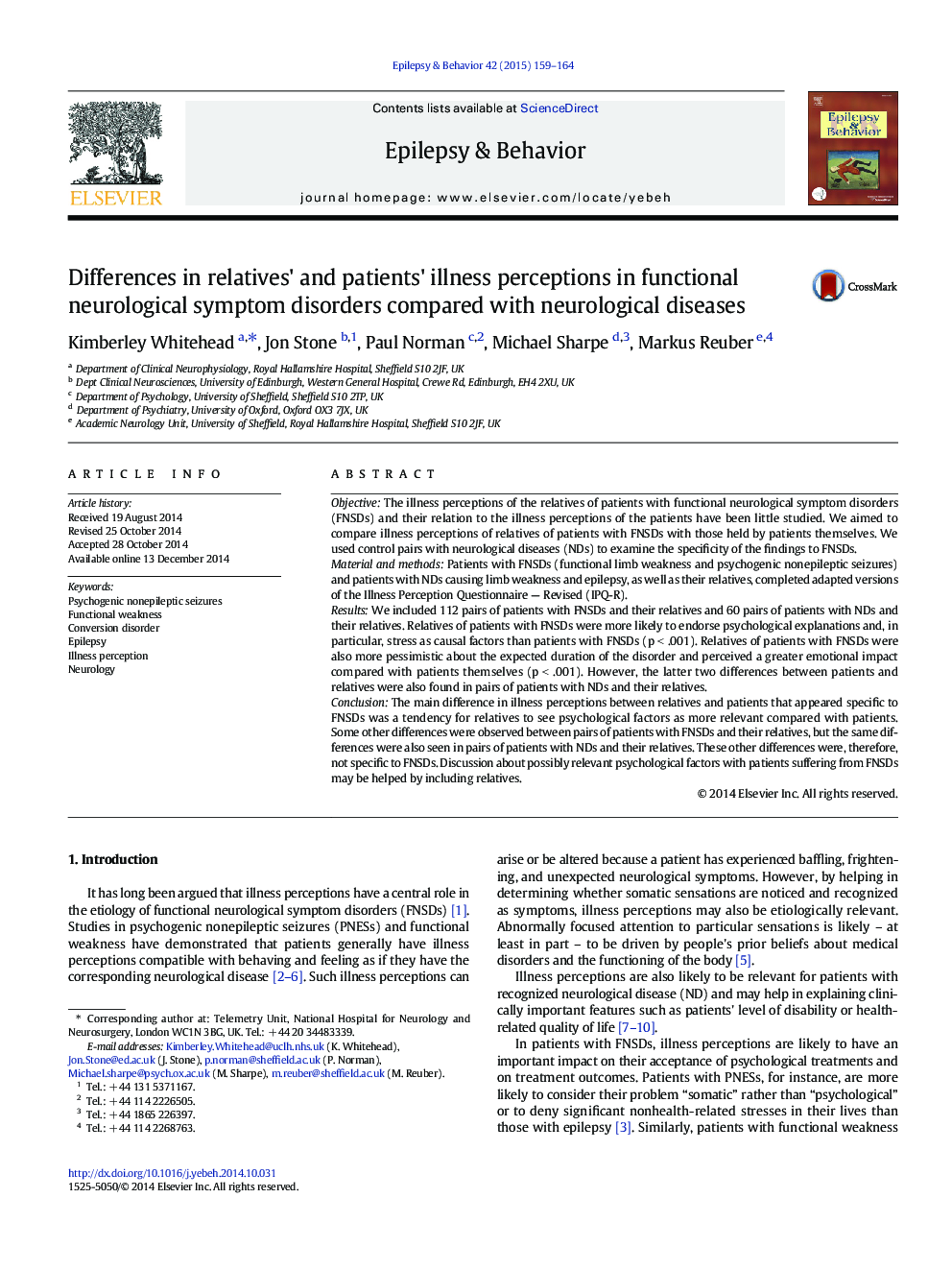| Article ID | Journal | Published Year | Pages | File Type |
|---|---|---|---|---|
| 3049617 | Epilepsy & Behavior | 2015 | 6 Pages |
•Relatives of patients with FNSDs were more likely to endorse psychological explanations than patients themselves.•Relatives of patients with FNSDs were also more pessimistic, but this is found in pairs of patients with NDs and their relatives, too.•Discussing psychological factors with patients suffering from FNSDs may be helped by including relatives.
ObjectiveThe illness perceptions of the relatives of patients with functional neurological symptom disorders (FNSDs) and their relation to the illness perceptions of the patients have been little studied. We aimed to compare illness perceptions of relatives of patients with FNSDs with those held by patients themselves. We used control pairs with neurological diseases (NDs) to examine the specificity of the findings to FNSDs.Material and methodsPatients with FNSDs (functional limb weakness and psychogenic nonepileptic seizures) and patients with NDs causing limb weakness and epilepsy, as well as their relatives, completed adapted versions of the Illness Perception Questionnaire — Revised (IPQ-R).ResultsWe included 112 pairs of patients with FNSDs and their relatives and 60 pairs of patients with NDs and their relatives. Relatives of patients with FNSDs were more likely to endorse psychological explanations and, in particular, stress as causal factors than patients with FNSDs (p < .001). Relatives of patients with FNSDs were also more pessimistic about the expected duration of the disorder and perceived a greater emotional impact compared with patients themselves (p < .001). However, the latter two differences between patients and relatives were also found in pairs of patients with NDs and their relatives.ConclusionThe main difference in illness perceptions between relatives and patients that appeared specific to FNSDs was a tendency for relatives to see psychological factors as more relevant compared with patients. Some other differences were observed between pairs of patients with FNSDs and their relatives, but the same differences were also seen in pairs of patients with NDs and their relatives. These other differences were, therefore, not specific to FNSDs. Discussion about possibly relevant psychological factors with patients suffering from FNSDs may be helped by including relatives.
